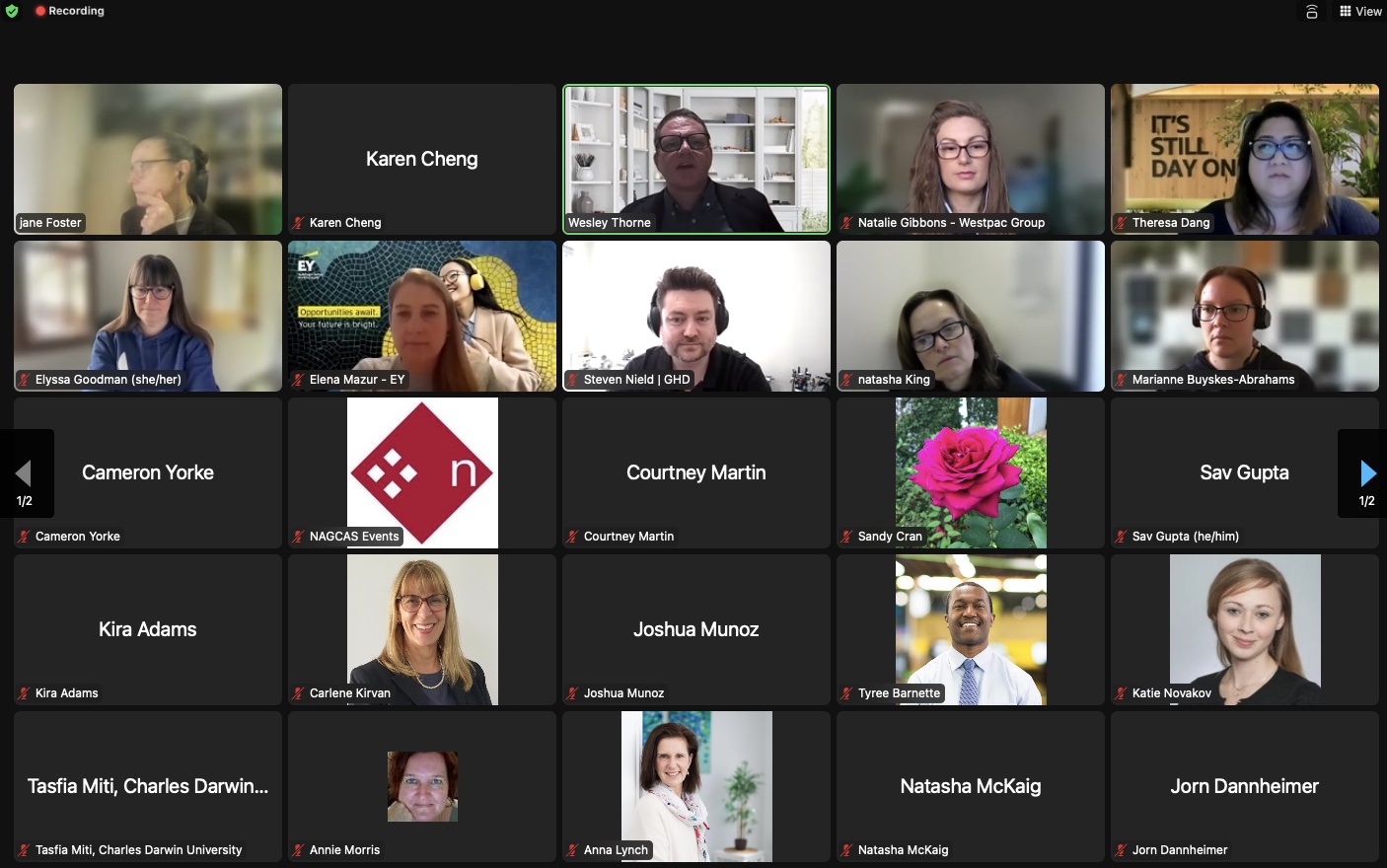From a demand for flexible working conditions to increased competition, these are just some of the trends in graduate recruitment for 2023 recruiters raised during our recent virtual panel on Effective Partnerships Between Graduate Employers and Career Services with the National Association of Graduate Careers Advisory Services (NAGCAS). Read on to see what seasoned grad employer representatives from Atlassian, GHD, Amazon and EY have observed.
1. Increased competition within employers
Competition has increased in the marketplace with smaller organisations emerging for the first time post-COVID, particularly in the tech sphere. What then can employers do to combat this rise in options for grads? Elyssa Goodman (Campus Recruiting Manager, Atlassian) emphasises the need for recruiters to search in a diverse pool of candidates and encourage students from all sorts of backgrounds to be open-minded in their applications.
What can university careers services do to help with increased competition in the marketplace?
Careers services can play a key advisory role to grad recruiters and help connect them with a diverse pool of candidates. By being an entry point into the university landscape, careers services can help connect recruiters to different faculties where they might be able to discover the top talent they’re searching for.
2. Flexibility is key priority for students
Theresa Dang (Campus Lead Student Programs, Amazon) and Steven Nield (Graduate Recruitment Lead, GHD) highlight that employers have been seeing an increased demand for flexibility from students with a switch to a more introspective mindset. It’s no longer ‘working for the system,’ but rather, ‘how do I make this work for me?’ As such, loyalty from candidates has been replaced by a willingness to jump ship to other employers, often comparing factors like compensation, flexible working conditions and employee benefits.
What can university careers services do to help employers adapt to this change in mindset?
University careers services can play a key role in educating students on the best practices of what to do and not to do when reneging:
- Let employers know as soon as you’ve made your decision instead of waiting until the last minute
- A lot of time and resources have likely already been spent on the onboarding of an accepted candidate
- Recruiters appreciate open, honest conversations with candidates
- Be transparent about your decision – no one needs to be burning any bridges this early on in their career!
3. Early talent skills gap – are grads job-ready?
With this shift in mindset also comes employers observing a general decline in job-readiness amongst graduate candidates as they come into the workforce. This can be largely attributed to COVID stripping the opportunities for grads to develop competency in skills like resilience training, emotional intelligence and effective communication skills. Steven and Elena Mazur (Oceania Campus Talent Acquisition Lead, EY) outline ways employers can help grads get job ready:
- Structure your graduate program so that it embeds job readiness skills earlier
- Intertwine training opportunities and experiences in a program before grads start e.g. a ‘Grad Ready’ or ‘Keep in Touch’ program
What can university careers services do to help grads get job-ready?
Steven proposes that careers services have the potential to play a large role by embedding career competence as a part of courses. While this may be something that is hard to assess, it could make a huge difference in seeing grads become more employable and sought after down the line!
 |
| Thank you to everyone who attended our NAGCAS panel! |
 | Elyssa Goodman Campus Recruiting Manager, Atlassian |
|  | Theresa Dang Campus Lead Student Programs, Amazon |
 | Steven Nield Graduate Recruitment Lead, GHD |
|  | Elena Mazur Oceania Campus Talent Acquisition Lead, EY |
